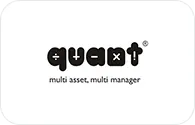- Mon - Sat: 8.00 - 18.00
- 101/F/3 G.T.Road(West) Mallickpara, Serampore, Hooghly
- +91-9230630841
Mutual Fund
- Home
- Mutual Fund
Mutual Fund
What is Mutual Fund?
Financial instruments known as mutual funds make investments in a variety of securities. Stocks, bonds, money market instruments, gold, silver, and real estate investment trusts (REITs) are a few examples of these securities. Mutual fund units, which each represent a specific percentage of the mutual fund scheme portfolio, are available for purchase. Professional fund managers oversee mutual funds, managing the schemes in accordance with the schemes’ investment goals.
Our Mutual Funds Support
Index Funds
Index Mutual Funds are designed to replicate the performance of a Specific Index, such as the S&P 500. This passive strategy requires less research from analysts and advisors, so fewer expenses are passed on to Investors through Fees, and these funds are designed with Cost-Sensitive Investors in mind.
They also frequently outperform actively managed Mutual Funds and thus potentially are the rare combination in life of Lower Costs and Better Performance.
What’s the best way to invest in Mutual Funds?
An asset management company (AMC) firm solicits public subscriptions through the New Fund Offer (NFO) when it introduces a new mutual fund scheme. Investors are given units at par value (often Rs 10) during the NFO period. You would receive 1,000 units if you invested Rs 10,000 in a mutual fund plan during the NFO period. To invest in mutual funds, you must comply with KYC regulations. You can meet KYC standards with the assistance of your financial advisor. To invest in mutual funds, you must submit bank account information in addition to KYC documents. Mutual fund investments can only be made from an investor’s personal bank account.
In accordance with the scheme’s mission, the funds collected from all investors are invested in a diverse portfolio of securities at the conclusion of the NFO period. Investors can purchase open-ended scheme units from the AMC at the current Net Asset Values (NAV) following the NFO. Additionally, open-ended mutual fund schemes are redeemable at any moment at current NAVs. On T+3 for equity funds, the redemption proceeds will be credited to your bank account. Investors should be aware that exit loads can be applicable for redemptions made within a specific time frame.
Mutual Fund
Grow Your Wealth with Smart Mutual Fund Investments

Equity Funds
These mutual fund plans make investments in stocks and securities linked to stocks. The market cap segments that the plan may predominantly invest in, such as big cap, large and midcap, midcap, small cap, multicap, flexicap, etc.,

Debt Funds
These mutual fund plans make investments in money market and debt securities. The maturity characteristics of the underlying debt or money market instruments—such as overnight, liquid, ultra-short duration, low duration, short duration, medium duration...

Hybrid Funds
Funds that invest in both debt and equity securities are known as hybrid funds. They might also make investments in other classes, such as gold, REITs, InvITs, and so on. Asset allocation is the main goal of hybrid funds' investments. There are several varieties of hybrid funds.
Taxation of Mutual Funds
From a tax standpoint, mutual funds that have an average equity allocation of 65% or higher—that is, when the underlying assets consist of stock and equity-related securities—are classified as equity funds. These comprise all equity funds as well as a number of hybrid fund types. Equity fund investments with a holding period of less than a year are subject to 15% tax on short-term capital gains. Up to Rs 100,000, long-term capital gains (investments held for more than 12 months) in equity funds are tax-free; beyond that, they are subject to 10% tax. In non-equity funds, short-term capital gains (investment holding time of less than 36 months) are taxed at the investor’s income tax rate. After adjusting for indexation, long-term capital gains (investments held for more than 36 months) in non-equity funds are subject to 20% tax. Section 80C allows for deductions for investments made in mutual fund Equity Linked Savings Schemes (ELSS).
Knowledge - Mutual Funds
The mutual fund, also known as a unit trust in various regions of the world, has a long and prosperous history. The mutual fund’s popularity has grown significantly. Mutual funds have nearly surpassed bank deposits and the total assets of insurance funds in established financial economies, such as the US. Currently, there are more than 5,000 mutual funds in the US alone, with assets totalling more than US $3 trillion (about Rs. 100 lakh crores). The establishment of Unit Trust of India in 1964 marked the beginning of the mutual fund business in India. Mutual funds were first established by public sector banks and financial organisations in 1987. In 1993, the establishment of mutual funds was permitted for both foreign and private institutions. With a combined asset value of about Rs. 81,000 crores, there are currently 36 mutual funds and more than 200 schemes. The Securities and Exchange Board of India (SEBI) oversees this rapidly expanding sector.
General & Life Insurance
Health insurance, endowment plans, whole life insurance, group insurance, retirement plans, children’s plans, wealth plans, and other schemes are based on need.
Other Investment
There are other additional investing options, such as small savings plans, banks, and post offices.
Stock, Commodity, Currency & ETF etc
Although the leading companies in India’s stock markets have placed wildly disparate wagers for the future—as is appropriate in any market scenario—there is a recurring theme in their approaches. They are all optimistic about the expansion of the Indian stock market and its potential to generate long-term riches.
ARE YOU HAVING ANY
MONEY MAKING QUERIES?
This is your opportunity to schedule a private consultation with one of our knowledgeable
wealth managers if you need professional assistance with your money-making issues.









































